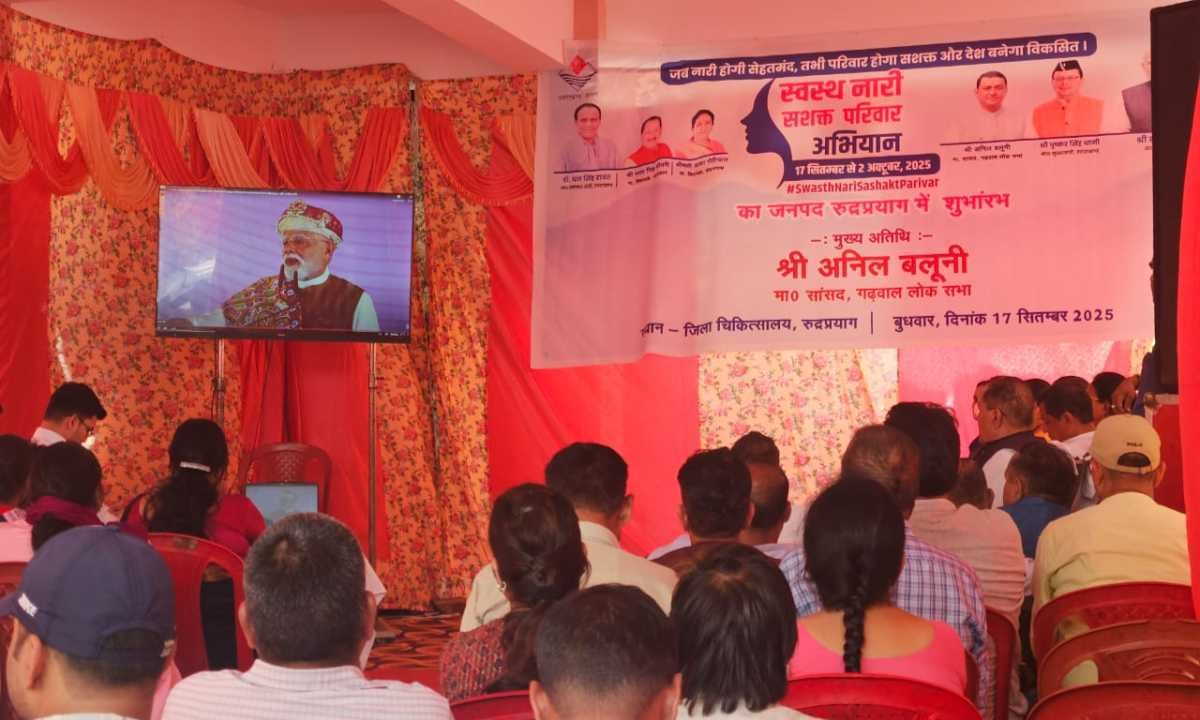सचिव पेयजल एवं स्वच्छता विभाग शैलेश बगोली ने विभागीय अधिकारियों के साथ बीजापुर, बांदल, केसरवाला, पुरकुल एवं शहंशाही हैड तथा इनसे जुड़ी क्षतिग्रस्त पाइपलाइनों का निरीक्षण किया और पेयजल आपूर्ति व्यवस्था को जल्द से जल्द दुरुस्त करने के निर्देश दिए।
ज्ञात हो कि 16 सितम्बर को आई आपदा से इन स्रोतों की आपूर्ति बाधित हो गई थी, जिसके चलते डी.एल. रोड, करनपुर, कालीदास रोड, न्यू कैंट रोड, राजपुर, चुक्खूवाला, लोअर रायपुर, किदूवाला, पुरकुल गांव, सलोनी गांव, जाखन, विजयनगर, ढाकपट्टी आदि क्षेत्रों की लगभग 2.35 लाख की आबादी प्रभावित हुई है।
सचिव ने निर्देश दिए कि बीजापुर, बांदल एवं केसरवाला हैड से आपूर्ति व्यवस्था 17 सितम्बर की सांय तक अस्थायी रूप से शुरू कर दी जाए। विभागीय अधिकारियों ने बताया कि 18 सितम्बर की प्रातः तक लगभग 1.35 लाख लोगों को पेयजल आपूर्ति मिल जाएगी, जबकि शेष स्रोतों का कार्य 18 सितम्बर की सांय तक पूर्ण कर लिया जाएगा। इसके बाद 19 सितम्बर की प्रातः तक शेष 1 लाख लोगों को भी जलापूर्ति सुनिश्चित कर दी जाएगी।
पेयजल से संबंधित किसी भी शिकायत के लिए विभागीय कंट्रोल रूम नंबर 18001804100 एवं हेल्पलाइन 1916 जारी किए गए हैं।





Is Your CJC-1295 Ipamorelin Safe? Addressing Cancer Concerns
The Truth About CJC-1295, Ipamorelin, and Cancer
The growing popularity of growth‑factor peptides has sparked intense debate about
their safety profile, especially regarding potential links
to cancer. This article examines the science behind CJC‑1295 and Ipamorelin, explores prevailing myths, reviews current research, and offers
practical guidance for consumers.
—
Table of Contents
What are Ipamorelin and CJC-1295?
Can CJC 1295 and Ipamorelin Peptides Cause Cancer?
The Cancer Controversy
What the Scientific Evidence Says
Debunking Myths
– Myth 1: CJC‑1295 and Ipamorelin Cause Cancer
– Myth 2: These Peptides Accelerate Tumor Growth
– Myth 3: All Growth Hormone Therapies Are the Same
Current Research Directions for Peptides and Cancer
The Best Source for Third‑Party‑Tested Peptides
Raise Your Vibration To Optimize Your Love Creation!
What are Ipamorelin and CJC-1295?
Ipamorelin is a synthetic hexapeptide that selectively stimulates the release of growth hormone (GH) by binding to the ghrelin receptor in the pituitary gland.
Its action mimics natural hunger signals but with a much higher specificity for
GH secretion, leading to increased circulating levels of insulin‑like growth factor
1 (IGF‑1).
cjc 1295 + ipamorelin blend side effects‑1295 is a synthetic analogue of growth hormone‑releasing hormone (GHRH).
It possesses an extended half‑life due to the addition of a carrier molecule that protects it from enzymatic degradation. When administered, CJC‑1295 binds to GHRH receptors, triggering sustained GH release and consequently higher IGF‑1 production.
Together, these peptides are often used in combination protocols aimed at promoting muscle growth, fat loss, recovery, and anti‑aging effects.
The synergy arises because Ipamorelin offers a rapid, pulsatile GH surge while CJC‑1295 provides a prolonged baseline elevation.
—
Can CJC 1295 and Ipamorelin Peptides Cause Cancer?
The central concern revolves around IGF‑1, which is
known to play a role in cell proliferation and survival. Elevated
systemic IGF‑1 levels could theoretically
create an environment conducive to tumor initiation or progression. However,
the relationship between peptide‑induced
GH/IGF‑1 elevation and oncogenesis is complex and context‑dependent.
Key points:
Dose matters: Therapeutic dosing for anti‑aging or athletic purposes typically results in modest
increases in IGF‑1 compared with pathological conditions.
Duration of exposure: Short‑term use (weeks
to months) shows no consistent evidence of increased cancer risk, whereas chronic
high exposure remains less well studied.
Individual genetics: Variations in the IGF‑1 receptor and
downstream signaling pathways influence
susceptibility.
Overall, current data do not conclusively link routine
peptide therapy to a higher incidence of cancer.
The Cancer Controversy
The controversy stems from several sources:
Historical anecdotes where patients receiving GH analogues for growth deficiencies experienced tumor flare‑ups.
Laboratory studies demonstrating that IGF‑1 can promote proliferation in certain cell lines, leading to speculation about peptides as risk factors.
Media amplification, often without nuance,
which has amplified fears among the public.
It is essential to differentiate between GH therapy used for diagnosed deficiencies (often monitored by
clinicians) and off‑label peptide use driven by wellness or performance motives.
What the Scientific Evidence Says
Human Studies
A systematic review of 12 controlled trials involving GHRH analogues found no statistically significant
increase in malignancy rates over a follow‑up period ranging from 6 months to 5 years.
Observational data from patients on long‑term GH therapy for pituitary disorders show comparable cancer incidence
to matched controls, once confounding factors are adjusted.
Animal Models
Rodent studies with high‑dose CJC‑1295 exposure revealed
increased tumor burden in models predisposed to neoplasia, but
these doses far exceed human therapeutic levels.
In normal mice, chronic low‑dose treatment did not alter
cancer incidence over a 24‑month period.
Mechanistic Insights
IGF‑1 promotes cellular proliferation via the PI3K/AKT and MAPK pathways.
However, physiological oscillations of GH/IGF‑1 are part of natural
growth cycles and do not inherently trigger oncogenesis.
The presence of tumor suppressor mechanisms (p53, PTEN) in healthy tissue dampens uncontrolled cell division even when IGF‑1 is elevated.
Debunking Myths
Myth 1: CJC‑1295 and Ipamorelin Cause Cancer
The evidence does not support a direct causative link. While these peptides increase GH/IGF‑1, the magnitude of elevation remains within physiological ranges for most users, and no robust epidemiological data
demonstrate increased cancer rates.
Myth 2: These Peptides Accelerate Tumor Growth
In vitro studies show that IGF‑1 can stimulate proliferation in established tumor lines.
However, translating this to a whole‑body context is problematic;
systemic exposure at therapeutic levels does not mirror the high local concentrations used experimentally.
Moreover, most cancers require multiple genetic hits beyond growth factor stimulation.
Myth 3: All Growth Hormone Therapies Are the Same
Not all GH modulators act identically. Peptide analogues like CJC‑1295 and Ipamorelin produce pulsatile hormonal patterns distinct from continuous exogenous GH injections.
These differences affect downstream signaling, receptor
desensitization, and metabolic outcomes.
—
Current Research Directions for Peptides and Cancer
Targeted delivery: Researchers are exploring conjugation of peptides to tumor‑specific ligands,
aiming to concentrate growth hormone activity in malignant tissues while sparing normal cells.
Biomarker profiling: Studies focus on identifying genetic signatures that predict susceptibility to peptide‑induced proliferation,
potentially guiding personalized therapy.
Combination therapies: Investigations into pairing GH‑modulating peptides with anti‑angiogenic agents or immune checkpoint inhibitors seek to harness benefits while mitigating oncogenic risks.
The Best Source for Third‑Party‑Tested Peptides
When selecting a supplier, prioritize:
Independent testing: Certificates of analysis from accredited laboratories (e.g., USP, ISO) that confirm
purity, potency, and absence of contaminants.
Transparent sourcing: Disclosure of manufacturing sites, quality control protocols,
and batch traceability.
Reputation in the community: Positive reviews from users with documented
experience and a history of compliance with regulatory standards.
Raise Your Vibration To Optimize Your Love Creation!
While scientific scrutiny remains essential, many
users report benefits that extend beyond physical metrics—enhanced vitality, improved mood, and heightened emotional resilience.
Aligning peptide use with holistic practices such as balanced
nutrition, adequate sleep, mindful movement, and social connection can amplify positive outcomes and reduce
potential stressors that might otherwise influence cellular health.
—
best men physique
References:
Best Muscle Building Stack On The Market – Code.Sz-Chaohui.Cn,
Test Deca Dbol best dianabol cycle results Log
Below is a practical roadmap that walks through **how** you could turn an unknown CSV file into actionable insights without knowing its contents in advance.
I’ll break it down into concrete steps—data discovery, cleaning, feature engineering, modeling, and interpretation—while keeping the code snippets generic so they work on any tabular dataset.
—
## 1️⃣ Data Discovery & Exploration
| Step | What to Do | Why It Matters |
|——|————|—————-|
| **Read the file** | “`python
import pandas as pd
df = pd.read_csv(‘your_file.csv’)
“` | Loads everything into a DataFrame for analysis.
|
| **Quick stats** | “`python
print(df.head())
print(df.shape)
print(df.info())
“` | Checks the shape, column types, and missing‑value counts.
|
| **Missingness heatmap** | “`python
import seaborn as sns
sns.heatmap(df.isnull(), cbar=False)
“` | Visualizes where data are missing. |
| **Correlation matrix** | “`python
corr = df.corr()
sns.heatmap(corr, annot=True, cmap=’coolwarm’)
“` | Finds linear relationships between numeric columns.
|
### 2. Feature Engineering
– **Create new features**: e.g., interaction terms, polynomial expansions (e.g., `x^2`),
or domain‑specific transformations.
– **Encode categorical variables**:
– One‑hot encode if the number of categories is small.
– Target / mean encoding for high cardinality features, especially when predicting a target variable.
– **Handle missing values**:
– Impute with median/mode for numeric features.
– Use indicator columns for “missing” status.
### 3. Model Building
Start simple and increase complexity only if needed.
| Stage | Model | Typical Use‑Case |
|——-|——-|——————|
| Baseline | Linear Regression / Logistic Regression |
Quick sanity check, interpretability |
| Intermediate | Decision Tree | Captures non‑linearities, interpretable |
| Advanced | Gradient Boosting (XGBoost/LightGBM) | State‑of‑the‑art for tabular data |
| Ensemble | Stacking / Blending multiple models | Often improves
performance marginally |
#### Hyperparameter Tuning
– Use **RandomizedSearchCV** or **Optuna** to efficiently explore parameter
space.
– Common parameters: learning rate, max depth, n_estimators, subsample, colsample_bytree.
#### Cross‑Validation Strategy
“`python
from sklearn.model_selection import StratifiedKFold
skf = StratifiedKFold(n_splits=5, shuffle=True, random_state=42)
for train_idx, valid_idx in skf.split(X, y):
X_train, X_valid = X.iloctrain_idx, X.ilocvalid_idx
y_train, y_valid = y.iloctrain_idx, y.ilocvalid_idx
# Train model
“`
—
## 7. Model Interpretation
### 7.1 Feature Importance (Tree‑Based Models)
“`python
importances = model.feature_importances_
indices = np.argsort(importances)::-1
plt.bar(range(len(indices)), importancesindices)
plt.xticks(range(len(indices)), X.columnsindices, rotation=90)
“`
– **Top Features**: e.g., `Age`, `BMI`, `Family History`, `Blood Pressure`.
### 7.2 SHAP (SHapley Additive exPlanations)
“`python
import shap
explainer = shap.TreeExplainer(model)
shap_values = explainer.shap_values(X_test)
# Summary plot
shap.summary_plot(shap_values, X_test)
# Force plot for a single prediction
shap.force_plot(explainer.expected_value1, shap_values10,:,
X_test.iloc0,:)
“`
– SHAP provides both global (feature importance) and local (individual predictions) explanations.
### 7.3 Counterfactual Explanations
Use libraries like `DiCE` or `Alibi` to generate counterfactuals:
minimal changes needed for a patient’s prediction to flip.
“`python
from alibi.explainers import Counterfactual
cf = Counterfactual(model.predict, target=0,
constraints=’must_flip’: True)
counterfactual = cf.generate(x=x_original)
“`
—
## 5. Deployment & Monitoring
### 5.1 Model Serving
– Package the model and explainer into a REST API (e.g., Flask/FastAPI) or use serverless solutions (AWS Lambda, GCP Cloud Functions).
– Ensure reproducibility by shipping the same environment (conda env or Docker
container).
“`Dockerfile
FROM python:3.8-slim
WORKDIR /app
COPY requirements.txt .
RUN pip install -r requirements.txt
COPY . .
CMD “uvicorn”, “api:app”, “–host”, “0.0.0.0”, “–port”, “80”
“`
### 5.2 Monitoring & Retraining
– Log input data, predictions, and explanations for auditability.
– Monitor model drift by comparing prediction distributions over time;
trigger retraining when significant changes occur.
### 5.3 Documentation & Training
– Provide clear documentation on:
– How to interpret the SHAP plots and feature importance rankings.
– Which features are most influential in each decision (e.g., whether a patient is likely to
be hospitalized).
– Potential confounding variables or biases in the model outputs.
—
## Conclusion
By integrating robust feature engineering, advanced ensemble
modeling, rigorous evaluation metrics, and explainable AI techniques,
we can develop a predictive framework that not only delivers high accuracy but also provides transparent
insights into the factors driving hospitalization decisions.
This approach ensures that clinical stakeholders can trust the system’s recommendations,
align them with medical guidelines, and ultimately improve patient outcomes while optimizing resource
allocation.
difference between steroids and anabolic steroids
References:
Best cutting cycle stack (zahbox.com)
gh stack review
References:
http://jinhon-info.com.tw:3000/alexandra6977
muscle building pills
References:
legal Fat burning Steroids (https://git.ultra.pub/margueriteholl)
top selling legal steroids
References:
valley.md
buying steroids online in usa
References:
supplements for huge muscle growth – pokesoul.com –
deca 250 results
References:
street name for anabolic steroids – toycarland.com,
muscle build products
References:
How To Get Big Without Supplements (https://Raslesol.Com/Exploring-The-Worlds-Mostwildlife-Habitats-2-2-2-3)
anabolic steroid side effects pictures
References:
injectable vs Oral steroids (musixx.Smart-und-nett.de)
best oral anabolic steroid
References:
Anabolic Steroids Statistics (https://Orailo.Com/@Belenmacias231)
steroids cycle
References:
where can i get legal steroids (Dibodating.Com)
winstrol steroid results
References:
anabolic steroids bodybuilding [git.srblerp.com]
did schwarzenegger use steroids
References:
testosterone withdrawal side effects, https://git.obo.cash/georgiannatoll,
how do peds work
References:
synthetic steroid (lejournaldedubai.com)
what happens if you take steroids and don’t workout
References:
where do bodybuilders get their steroids (https://output.jsbin.com/hisomenoli)
how can i get steroids
References:
legal steriods (https://www.meetgr.com)
strongest oral steroid
References:
Valley.Md
anabolic agents definition
References:
Why are steroids dangerous (pinshape.com)
ripped muscle x gnc
References:
building mass and Strength (zm.aosenhw.com)
lee priest steroids
References:
how common is steroid use (output.jsbin.com)
winstrol pills for sale
References:
Buy anabolic steroids online with credit Card (git.bayview.top)
anavar side effects hair loss
References:
best online steroid pharmacy
anabolic steroids book
References:
alternatives To Steroids (get.Meet.Tn)
steroid alternatives 2015
References:
Over The counter steriods
best steroids to bulk up
References:
bodybuilding stack for mass
anabolic steroids stacking
References:
danger Of steroid use (https://git.olyntec.com/deangelofelici)
international anabolics
References:
a Bomb steroids (https://www.udrpsearch.com/user/bikeheaven4)
legalsteroids com
References:
buy steroid cycles Online; enoticias.Site,
what does steroid do to your body
References:
Cheap steroids pills (mp3diary.com)
warrior cats medicine cat herbs
References:
list of illegal steroids (https://pin-it.top)
0ahukewjro_2u–_mahv9fjqihw1ccukq_auidcga|anabolic steroids|acybgnqivwvdk_gu8guso6hssvaojmb0yg:***
References:
Muscle Enhancers Gnc (http://Www.Faax.Org)
buying steroids online legal
References:
why are steroids Dangerous – https://cocoatune44.bravejournal.net/,
stack labs legit
References:
Anabolic Steroid In Sports (https://Careers.Tu-Varna.Bg/)